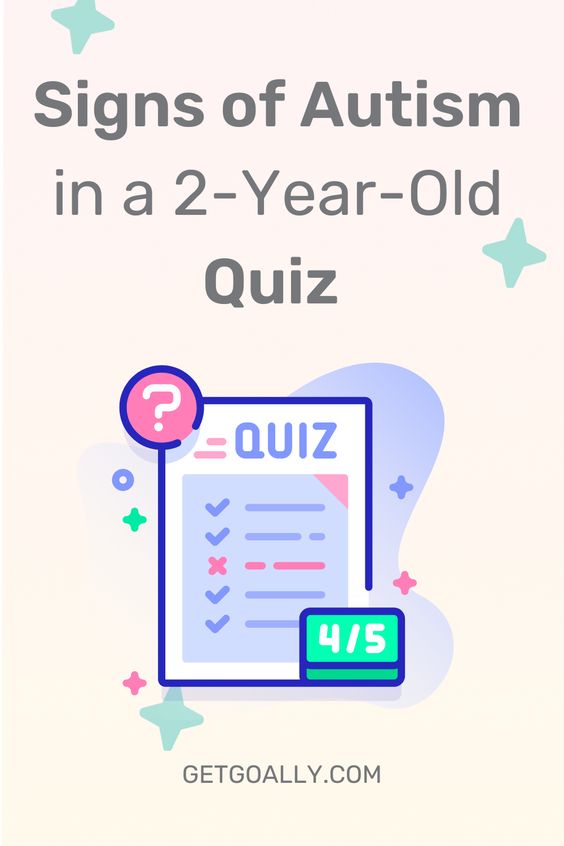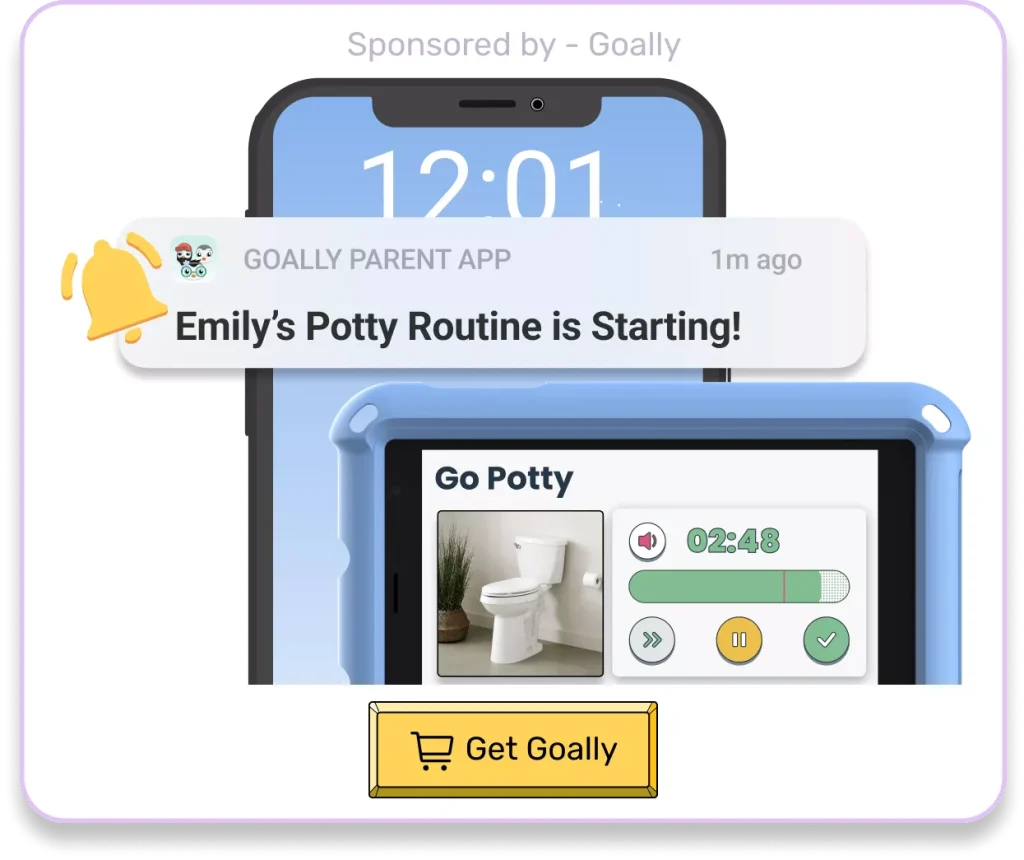As a parent, you’ve likely spent countless hours researching ways to help your child grow and develop to their fullest potential. In this pursuit, you might have stumbled upon the term “autism” and wondered if it could affect your little one. Worry not! We’ve put together this comprehensive blog post on autism in kids to provide you with valuable insights and an autism quiz toddler assessment by Goally that can be taken to help you better understand your child’s development. Before we dive into the details, let’s first establish what autism is. Autism, or Autism Spectrum Disorder (ASD), refers to a range of neurodevelopmental conditions characterized by challenges in social interaction, communication, and repetitive or restricted behaviors. Recognizing the early signs of autism in toddlers can be crucial in seeking timely intervention and support.
Table of Contents
Autism in Kids: Understanding the Signs and Symptoms
Autism manifests differently in every child, making pinpointing a one-size-fits-all list of symptoms difficult. However, some common signs may indicate a need for further evaluation. Here are a few key symptoms to look out for:
- Difficulty making eye contact
- Delayed speech or language development
- Repetitive behaviors or routines
- Struggling with social interactions and understanding emotions
- Unusual sensory interests or aversions
It’s essential to remember that having one or more symptoms doesn’t automatically mean a child has autism. A professional evaluation is necessary to determine if a child is on the autism spectrum.
Goally | Visual Scheduler for Autism
Does your child struggle with getting ready in the morning independently? Goally’s routine app on the best tablet for kids breaks down large tasks into small, achievable steps for autistic kids. Create custom routines with your own videos & pictures for every step.
Beyond these common signs, other less-known indicators may point toward autism. Some of these lesser-known signs include:
- Intense preoccupation with certain objects or subjects
- Excessive lining up or stacking of items
- Using someone else’s hand as a tool
- Difficulty adapting to changes in routine
- Echolalia, or repeating phrases and sounds
Being aware of these lesser-known signs can help you better understand your child’s behavior and identify any potential concerns related to autism.

Read more: How is Autism Diagnosed?
Why Early Detection Matters
Early detection of autism is vital for multiple reasons. Firstly, it can help families better understand their child’s unique needs and challenges. Secondly, early intervention services can significantly improve a child’s development and quality of life.
Studies show that kids who receive early intervention services have better outcomes in communication, social skills, and overall cognitive abilities. These services can include speech therapy, occupational therapy, or Applied Behavior Analysis (ABA).
Moreover, early detection and intervention can lead to the following benefits:
- Reduced need for special education services in the future
- Increased likelihood of independent living as an adult
- Improved emotional well-being for both the child and their family
- Greater integration and acceptance in society
With these advantages in mind, it becomes even more critical to pay attention to early signs and seek professional help when necessary.
Professional Evaluation and Diagnosis
While our autism quiz toddler assessment can help you identify potential concerns, a professional evaluation is necessary for a formal diagnosis. This process typically involves multiple assessments and consultations with specialists, such as pediatricians, psychologists, and speech therapists.
During the evaluation process, professionals will consider the following aspects:
- Developmental history
- Medical history
- Behavioral observations
- Standardized testing
By considering all these factors, professionals can determine whether your child has autism or another neurodevelopmental disorder. Remember that early detection and intervention can significantly improve outcomes for children on the autism spectrum.
Supporting Your Neurodivergent Child
If your child receives an autism diagnosis, it’s important to know that plenty of resources and support are available to help them thrive. From early intervention services to specialized educational programs, there are various ways to assist kids with autism in reaching their fullest potential.
One such resource is Goally’s learning tablet, explicitly designed for neurodivergent kids. These tablets offer a wide range of apps and tools to help kids with thinking and learning differences develop essential skills, such as time management, organization, and self-regulation.
Embracing Your Child’s Unique Abilities
Remember that an autism diagnosis doesn’t define your child; it merely provides a framework to understand their strengths and challenges. By embracing your child’s unique abilities and providing the necessary support, you can help them lead a fulfilling and successful life.
So, whether you’re just starting your journey or already well-versed in the world of autism, our autism quiz toddler assessment and this blog post on autism in kids serve as valuable resources to guide and empower you as a parent. Stay informed, seek support, and always remember that your love and understanding make all the difference in your child’s life.

Read more: Toddler Routine Chart
Parenting Strategies for Raising a Child with Autism
Raising a child with autism may present unique challenges, but with the right strategies, you can support your child’s growth and development effectively. Here are some parenting tips to help you navigate this journey:
- Learn as much as possible about autism and your child’s specific needs.
- Establish consistent routines to provide a sense of security.
- Encourage and facilitate social interactions with peers.
- Utilize visual aids to support communication and understanding.
- Focus on your child’s strengths and interests to foster a sense of accomplishment.
- Practice patience and flexibility as you adapt to your child’s needs.
Remember that each child is different, and what works for one child may not work for another. Be open to experimenting with various strategies and approaches to find the best for your family.
Building a Support Network
A strong support network is crucial for parents and children with autism. Connecting with other families with similar experiences can provide emotional support, practical advice, and a sense of community. Consider joining local support groups, online forums, or social media groups to connect with other parents and caregivers of neurodivergent kids.
Additionally, collaborating with your child’s healthcare and educational team can help ensure they receive support and accommodations in various settings. Open communication and a strong partnership between parents and professionals are key to providing the best possible care for your child.
Goally | Apps To Support Child Development
Looking for fun ways to help your child learn life skills? Try Goally! The Goally tablet comes with award-winning learning apps and video classes to help kids develop the skills they need to become independent with FUN & evidence-based practices.

Our apps teach executive function, language, emotional regulation, finger dexterity skills, and more.
As your child develops new skills, you can increase the difficulty level of the tasks in the app to challenge and motivate them even further. This helps your child grow and progress at their own pace, while also keeping them engaged and excited about their development.

In summary, recognizing the early signs of autism and seeking timely intervention can significantly affect your child’s development and quality of life. Our autism quiz toddler assessment is a valuable tool to help you identify potential concerns and seek professional guidance if needed. As you embark on this journey with your child, remember that support and resources are available to help them thrive. By staying informed, seeking help when necessary, and embracing your child’s unique abilities, you can ensure they have the best opportunities for growth and success.
This post was originally published on 05/21/2023. It was updated on 08/02/2023.

Goally
We help parents teach their kids life skills, like doing bedtime and morning independently. Backed by science, we incorporate evidence-based practices and expert-informed designs in all of our apps and content.







